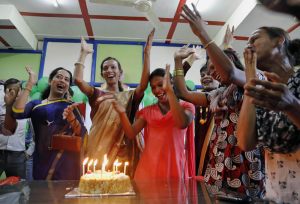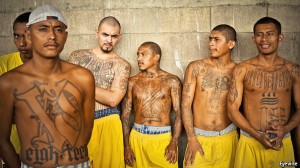As a tumultuous year for gender equality draws to a close it’s worthwhile to look back and see what successes and positive developments have been achieved in the past 12 months. UN Women’s Gender Equality Timeline does just this. For all of our friends and colleagues around the world who work everyday on making the world a more equal and fair place for every gender, good change is happening – and it’s thanks to all of you.
Monthly Archives: December 2014
Masculinities Mondays: 15th December 2014
After a great 16 Days Campaign (check out the previous posts if you missed it), Masculinities Mondays is back to its regular routine.
- First up, an article from The Economist on men’s violence in Central America. Despite having the highest male murder rates in the world, new approaches to transform masculinities appear to be showing at least initial signs of reducing rates of violence.
- Secondly, check out actor Terry Crews speaking out about feminism and masculinity. Crews explains,
“I want to be clear that feminism is not saying women are better than men. That’s not what’s going on…what it is is true gender equality.”
Now THAT’S what we’re talking about!
- And, thirdly, since we’re on the topic of promoting non-violent masculinities, you may also want to check out Men Care‘s initiative on The Power of Paternity Leave.
Have a great week, everyone!
16 Days: Day 16
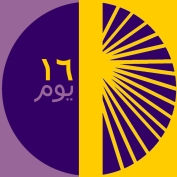 Today, International Human Rights Day, also marks the end of the 16 Days of Activism against Gender-based Violence. Far from signaling the end of work on this issue, however, today should be the start of a year ahead of asking uncomfortable questions, shifting attitudes, having difficult conversations and just generally trying to push the envelope even further on issues of violence against women, gendered power dynamics, and discrimination. This can be a daunting and disheartening task, no matter where in the world you are trying to work, but that’s all the more reason for those of us who are passionate about making the world a more peaceful place – those of you who read these posts over the last 16 days or participated in related activities – to share our knowledge, our lessons, and, most importantly, our positive stories.
Today, International Human Rights Day, also marks the end of the 16 Days of Activism against Gender-based Violence. Far from signaling the end of work on this issue, however, today should be the start of a year ahead of asking uncomfortable questions, shifting attitudes, having difficult conversations and just generally trying to push the envelope even further on issues of violence against women, gendered power dynamics, and discrimination. This can be a daunting and disheartening task, no matter where in the world you are trying to work, but that’s all the more reason for those of us who are passionate about making the world a more peaceful place – those of you who read these posts over the last 16 days or participated in related activities – to share our knowledge, our lessons, and, most importantly, our positive stories.
It is with this in mind, that today we direct you to the freshly-launched site of What Works to Prevent Violence where you’ll find resources, news and examples of international best practice. Explore, learn, share, and keep the conversation going.
16 Days: Day 15
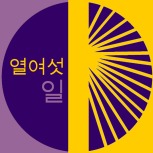 Realized that the 16 Days of Activism is almost over and you feel like you haven’t participated enough? Wondering how you can join the conversation? Don’t fret! USAID ASSIST Project, Knowledge for Health (K4Health), The Asia Foundation, Promundo, Chemonics, World Vision and The TOPS Program have come together to host a tweetchat relay on December 10th to highlight different approaches and responses to prevent and respond to gender-based violence. Click here to find out how you can participate from 9am to 4pm EST on Wednesday the 10th of December.
Realized that the 16 Days of Activism is almost over and you feel like you haven’t participated enough? Wondering how you can join the conversation? Don’t fret! USAID ASSIST Project, Knowledge for Health (K4Health), The Asia Foundation, Promundo, Chemonics, World Vision and The TOPS Program have come together to host a tweetchat relay on December 10th to highlight different approaches and responses to prevent and respond to gender-based violence. Click here to find out how you can participate from 9am to 4pm EST on Wednesday the 10th of December.
16 Days: Day 14
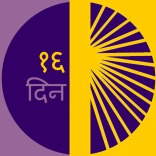 Improving access to information about sexual health and promoting positive messages about female sexuality help to create a culture of respect for women’s bodies and an understanding that consent is always critical. With this in mind, today we are celebrating the vagina with these great facts – enjoy and share what you’ve learned!
Improving access to information about sexual health and promoting positive messages about female sexuality help to create a culture of respect for women’s bodies and an understanding that consent is always critical. With this in mind, today we are celebrating the vagina with these great facts – enjoy and share what you’ve learned!
16 Days: Day 13
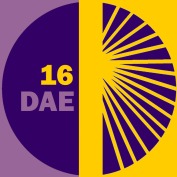 An old campaign but, unfortunately, still probably as true to today as it was four years ago when it first came out, this video by People Opposing Women Abuse (POWA) examines community reluctance to intervene in situations of violence against women. In the same vein as Breakthrough’s Bell Bajao campaign in India, the POWA video aims to encourage neighbours to speak out and take an active stand against domestic violence:
An old campaign but, unfortunately, still probably as true to today as it was four years ago when it first came out, this video by People Opposing Women Abuse (POWA) examines community reluctance to intervene in situations of violence against women. In the same vein as Breakthrough’s Bell Bajao campaign in India, the POWA video aims to encourage neighbours to speak out and take an active stand against domestic violence:
Trigger warning: this video includes references to physical violence that may be triggering for people who have experienced abuse.
16 Days: Day 12
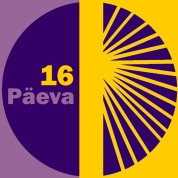 Tonight I was watching Dirty Dancing and it occurred to me how rarely I’ve seen abortion referred to on screen and I came to the sad realisation that, had Dirty Dancing been made in this decade, it probably wouldn’t have passed the conservative censors. None of us would know the line “I carried a watermelon” nor have the image of the late Patrick Swayze lifting Jennifer Grey in a lake.
Tonight I was watching Dirty Dancing and it occurred to me how rarely I’ve seen abortion referred to on screen and I came to the sad realisation that, had Dirty Dancing been made in this decade, it probably wouldn’t have passed the conservative censors. None of us would know the line “I carried a watermelon” nor have the image of the late Patrick Swayze lifting Jennifer Grey in a lake.
Abortion is a debate that, it seems, is always going to be divisive, with a lot of assumption and misunderstanding from both sides. For example, to say that people who are pro-choice are not pro-life is a misnomer – we are 100 pro women’s lives. State control over women’s bodies is inextricably linked to patriarchy and, according to the World Health Organisation, every year 47,000 women die from complications related to unsafe abortions – people who support the legalisation of abortion aim to save the lives of these women and the many more who are never reported. Of course, though, this inevitably leads to a circular argument about when ‘life’ begins so, instead, we will leave you with a straight-forward article by Rebecca Traister and an equally straight-forward article by Josh Brahm and let you come up with your own conclusions about how this debate may be relevant to the 16 Days of Activism on Gender-based Violence.
16 Days: Day 11
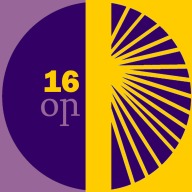 Violence against women occurs in multiple forms all around the world. This article by Dana MacLean explores violence against people accused of witchcraft in Papua New Guinea. Although men are also tortured and murdered on accusations of sorcery, Amnesty International estimates that women are six times more likely to be accused of witchcraft. Some communities in PNG believe that women are genetically pre-disposed to sorcery because of evil spirits in the womb. Much like the European witch-hunts of the 15th to 18th centuries (lest we forget that delightful tome of 1486, Malleus Maleficarum, in which the male authors state: “All wickedness is but little to the wickedness of a woman…Women are by nature instruments of Satan — they are by nature carnal, a structural defect rooted in the original creation.”), modern-day witch-hunts are often an excuse to use violence against women, as Kate Scheutze of Amnesty International says of PNG. Read the whole article here.
Violence against women occurs in multiple forms all around the world. This article by Dana MacLean explores violence against people accused of witchcraft in Papua New Guinea. Although men are also tortured and murdered on accusations of sorcery, Amnesty International estimates that women are six times more likely to be accused of witchcraft. Some communities in PNG believe that women are genetically pre-disposed to sorcery because of evil spirits in the womb. Much like the European witch-hunts of the 15th to 18th centuries (lest we forget that delightful tome of 1486, Malleus Maleficarum, in which the male authors state: “All wickedness is but little to the wickedness of a woman…Women are by nature instruments of Satan — they are by nature carnal, a structural defect rooted in the original creation.”), modern-day witch-hunts are often an excuse to use violence against women, as Kate Scheutze of Amnesty International says of PNG. Read the whole article here.
16 Days: Day 10
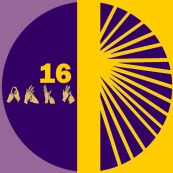 December 3rd was the International Day of Persons with Disabilities and, as power works in intersectional and multidimensional ways, women with disabilities are especially at risk from violence. To raise awareness about this critical – and often overlooked – issue, Human Rights Watch has released a new report on Abuses against Women and Girls with Psychosocial or Intellectual Disabilities in Institutions in India. It’s a difficult but important read.
December 3rd was the International Day of Persons with Disabilities and, as power works in intersectional and multidimensional ways, women with disabilities are especially at risk from violence. To raise awareness about this critical – and often overlooked – issue, Human Rights Watch has released a new report on Abuses against Women and Girls with Psychosocial or Intellectual Disabilities in Institutions in India. It’s a difficult but important read.
16 Days: Day 9
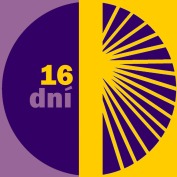 Most of you will be familiar with the concept of gender being a cross-cutting issue. On this ninth day of the 16 Days Campaign we bring you a great new article by Sara Martin and Maria Holtsberg about how even natural disasters are gendered; in other words, how women and men are differently susceptible to harm during and after a natural disaster because of their gender roles as women and men. As the authors explain,
Most of you will be familiar with the concept of gender being a cross-cutting issue. On this ninth day of the 16 Days Campaign we bring you a great new article by Sara Martin and Maria Holtsberg about how even natural disasters are gendered; in other words, how women and men are differently susceptible to harm during and after a natural disaster because of their gender roles as women and men. As the authors explain,
Even though the disaster itself doesn’t discriminate, society does, and certain practices within a society can leave women or other groups susceptible to harm.
Read the whole article here.
